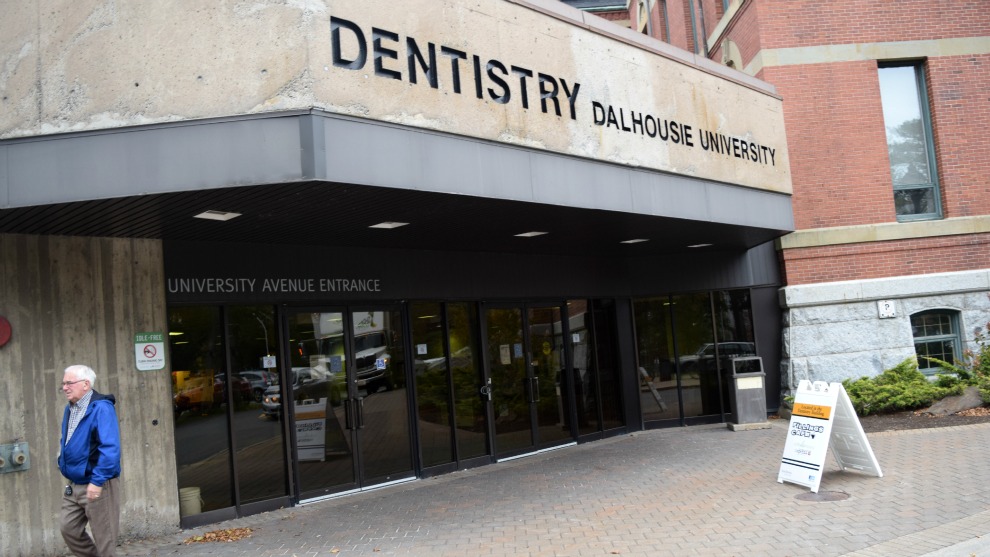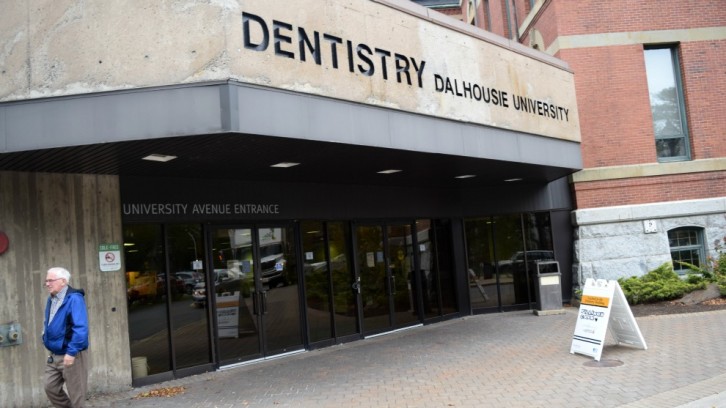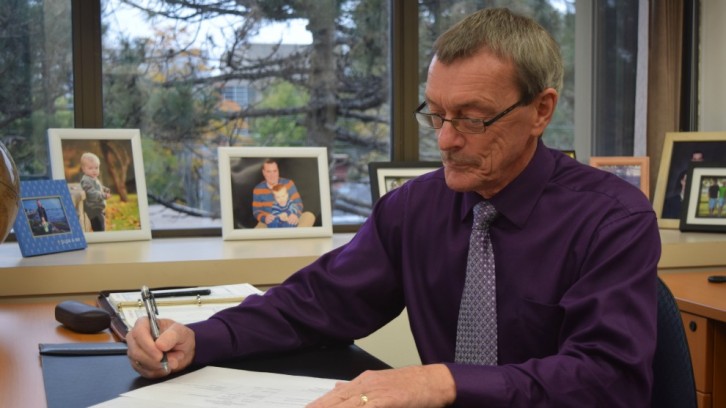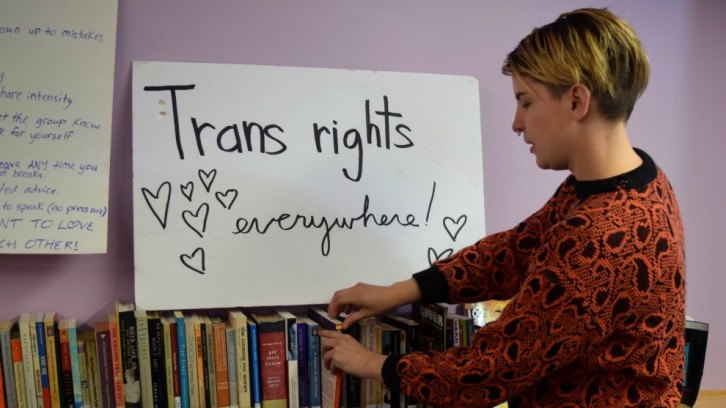Dentistry
One year after dentistry scandal, divided views on response, pace of change
Dalhousie University's administration and an advocacy group have conflicting perspectives on what positive change looks like

caption
Dalhousie's dentistry school, located at University Avenue and Robie Street.
caption
Dalhousie’s dentistry school, located at University Avenue and Robie Street.Dalhousie University is still working to rebuild the trust that was broken locally and internationally last December, when 13 dentistry students involved in an abusive Facebook group called attention to a culture of “misogyny, sexism and homophobia” within the school.
Over the past months, the administration has been widely criticized for its response to the crisis. Members of the university community criticized what they saw as a quick-fix restorative justice program and temporary clinical suspension for perpetrators, which resulted in protests and public debate.
Now, as the school works on long-term cultural change, advocacy groups and community members are also making efforts to find solutions. From policy change to on-the-ground work, there is still no united front at Dalhousie regarding either steps or end goals.
“Systemic change is something that’s time-based. [It] can’t happen overnight, you need to have as much engagement as possible, as broadly as possible, for as long as possible,” says Margaret Denike, co-ordinator of Gender and Women’s Studies at Dalhousie, who was involved in mobilizing and creating panel discussions over the past year regarding “rape culture.”
A ‘holistic’ response
The school administration’s first response came in the form of a two-month clinical suspension and a required restorative justice program for the Facebook perpetrators. Widely criticized for its response, the school faced protests from community members demanding the release of the offenders’ names and their expulsion.
In response to the criticism, Dalhousie struck an external task force of lawyers and experts to research and lead long-term cultural change on campus.
By conducting interviews with more than 150 Dalhousie students, staff and administrators, the group produced a report in late June. Informally referred to as the Constance Backhouse Report, it identified specific problems and recommended 29 ways in which the school could address them. The university has committed to implementing the 29 recommendations on all levels, varying from administrative policy changes to improved channels of communication for staff and students.
“Our ongoing response is a holistic one, informed by all three reports,” said Brian Leadbetter, director of communications and public relations at Dalhousie. “A lot of progress has been made, and we believe we can be an example for diversity and inclusiveness.”
Administrative change
Tom Boran, dean of the dentistry school, viewed the Facebook incident as a symptom of a larger, societal issue — widespread misogyny and homophobia. Pleased with the outcome of the implemented solutions such as the restorative justice process, Boran is impressed with the way the administration and staff have worked together in the past months.
“I think it was managed in a very professional, positive way in trying to respect the safety of individuals that were concerned,” he said.

caption
Dean of Dentistry Tom Boran on the administration’s handling of the scandal: “I think it was managed in a very professional, positive way.”Now that the implicated students have graduated, Boran is focusing on implementing tangible changes in policy and culture for incoming students. Targeting orientation week as an opportunity to educate students on respect and professionalism at school and in the workplace, dentistry school students now receive ethically driven training on their first day of class.
“We’ve […] actually had some results in day one, minute one, of orientation with the students,” said Boran, referring to community service projects that first-year dentistry and dental hygiene students worked on together.
The traditionally isolated relationship between dentistry and dental hygiene students has previously been identified as a contributing factor for disrespectful relationships. Bringing the two faculties together on the first day of school, says Boran, allows the students to “start to work together and understand how [their] relationship would evolve throughout their careers.”
Tasked to commit “an act of random kindness,” the students came up with projects to help homeless individuals and seniors: “It was just really amazing outcome of students working together for the common good of the community.”
“We’re doing the work Dal should be doing”
Jude Ashburn, one of two co-ordinators at South House, a volunteer-based gender-justice centre in Halifax, disagrees with Boran that the administration appropriately responded to the crisis.
Ashburn’s primary responsibility at South House is to provide support and resources to survivors of sexual violence and assault. In attempting to identify systemic issues of misogyny and rape culture on campus, Ashburn has organized protests, sat on panels, and started the Twitter movement ‘#DalhousieHatesWomen,’ which has more than 70,000 posts on the site.

caption
Jude Ashburn, co-ordinator of South House: “No student should have to approach their school with self-protection in mind 24 hours a day.”Ashburn describes the Dalhousie administration’s actions after the Dentistry scandal as “a colossal failure.”
“It didn’t give survivors, women, trans-people or queers any reason to feel like they had any kind of systemic reason to come to this university,” Ashburn said.
South House provides free consultation and support services, a 24-hour sexual assault hotline and an accessible safe space on campus. Ashburn says South House received its first honourarium from the Dalhousie administration only a few weeks ago, although it has been providing this kind of support for more than 20 years. The cheque, says Ashburn, was a direct response on the part of the university to the recommendations made in the Constance Backhouse Report.
The hotline, a pilot project started in September, provides non-oppressive support to sexual assault survivors. Ashburn has recently requested administrative funding for the project, but has not yet received an answer.
Ashburn argues that the university needs to support resources that already exist within the community rather than implementing new structures.
“They step over the people that are already doing these things,” said Ashburn. “You know, it’s a silver platter, but they don’t take it. It’s frustrating.”
During September, South House says it has provided about 25 “anti-oppression” workshops to the community. With only two paid staff members at South House, Ashburn says it has been challenging to adequately respond to the demand for its services after the dentistry scandal broke out.
“We’re doing the kind of work that Dal should be doing,” said Ashburn.
A look forward
Margaret Denike believes that changing a deeply ingrained culture is not a quick process. She believes constructive change happens when people work towards the same goals on many different levels.
Denike sits on an administrative panel currently hiring for a position within the president’s office, titled Executive Director of Diversity and Inclusiveness. The new director will work toward creating a respectful and inclusive culture at Dalhousie, while responding to the recommendations provided by external reports. In the future, Denike says, the university hopes to develop a long-term plan for diversity and inclusiveness.
Denike feels the establishment of this executive position may bridge the existing gap between bureaucratic process and concrete action.
This is one of a number of changes underway at Dalhousie, says Brian Leadbetter. He expects a data-collection project on diversity within the community to be produced in November, and says new initiatives from the Office of Human Rights, Equity and Harassment Prevention are underway.
Dalhousie plans to host an international conference on restorative justice in 2016.

